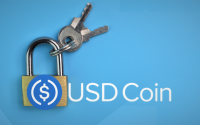HKMA And UAE Discuss Virtual Asset Regulation
The Hong Kong Monetary Authority (HKMA) and the United Arab Emirates (UAE) have engaged in discussions regarding the regulation of virtual assets. During the HKMA’s visit to the UAE last month, Chief Executive Yue Wai-man highlighted the development of virtual assets in a regulated environment in both regions. With Hong Kong having introduced its regulatory framework earlier, the UAE expressed interest in learning from Hong Kong’s experience.
Yue Wai-man, President of the Hong Kong Monetary Authority, responded to the United States' strengthening of cryptocurrency regulation and Hong Kong's relaxation.
Yue pointed out that the United States did not have clear regulatory requirements for virtual assets in the past.…
— Wu Blockchain (@WuBlockchain) June 19, 2023
Virtual Asset Supervision Standards
Yue emphasized that Hong Kong’s virtual asset supervision was initially stringent, almost to the point of prohibition, and comparatively less defined than in other regions. However, regulatory standards across different jurisdictions are now converging, which is expected to reduce regulatory arbitrage caused by varying standards.
In terms of international developments, Yue noted that the United States lacked clear regulatory requirements for virtual assets in the past. Meanwhile, Singapore and Dubai had already regulated certain functions of virtual currencies, particularly anti-money laundering measures. Hong Kong gradually adjusted its regulatory approach, drawing from the experiences of other countries, such as the collapse of FTX, to establish clearer and stricter regulations.
Cross-Border Digital Currency Test
Regarding the acceptance of virtual asset exchange accounts by major banks in Hong Kong, the HKMA had engaged in discussions with these institutions. Yue clarified that while there might be varying levels of pressure during these exchanges, the banking regulatory framework primarily focused on traditional financial businesses. He emphasized the need for the industry to continuously update its understanding and regulatory expectations and highlighted the importance of banks following risk-based principles and conducting customer reviews before opening accounts.
The HKMA, together with the UAE Central Bank, the Bank for International Settlements, the People’s Bank of China, and the Bank of Thailand, conducted a successful cross-border central bank digital currency payment test last year using the Digital Bridge platform. Yue revealed plans to launch the “simplest viable product” by early next year and expects more central banks to join the platform. However, he stressed the need to manage the platform responsibly, address decentralization concerns, adhere to local regulatory rules, ensure liquidity provision, and collect relevant collateral.



